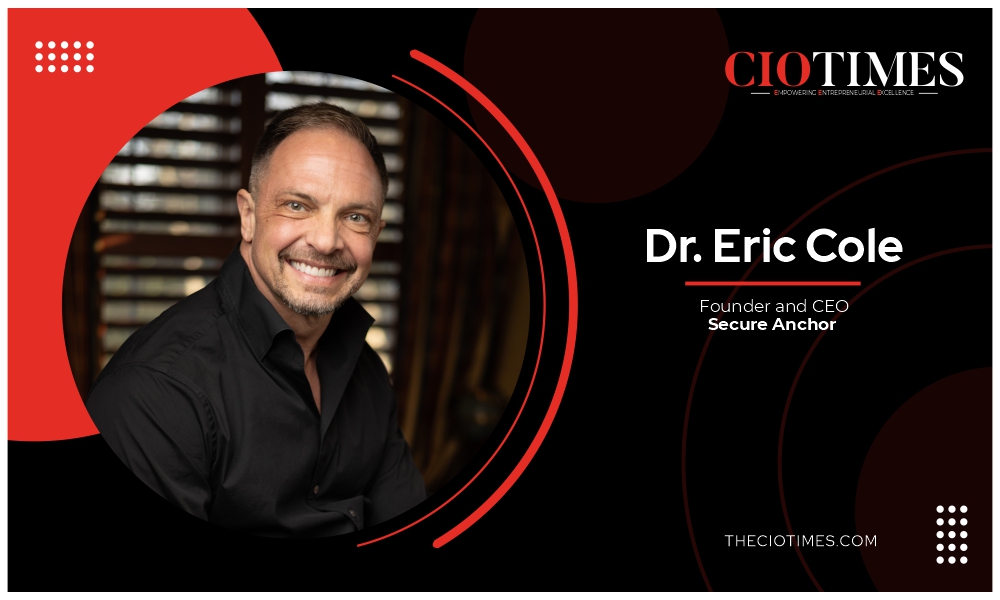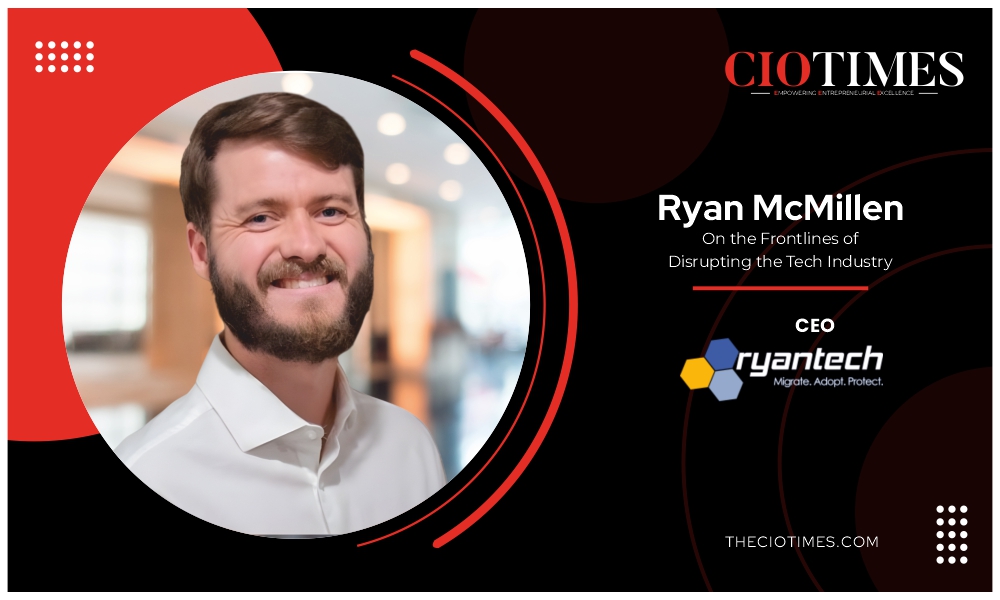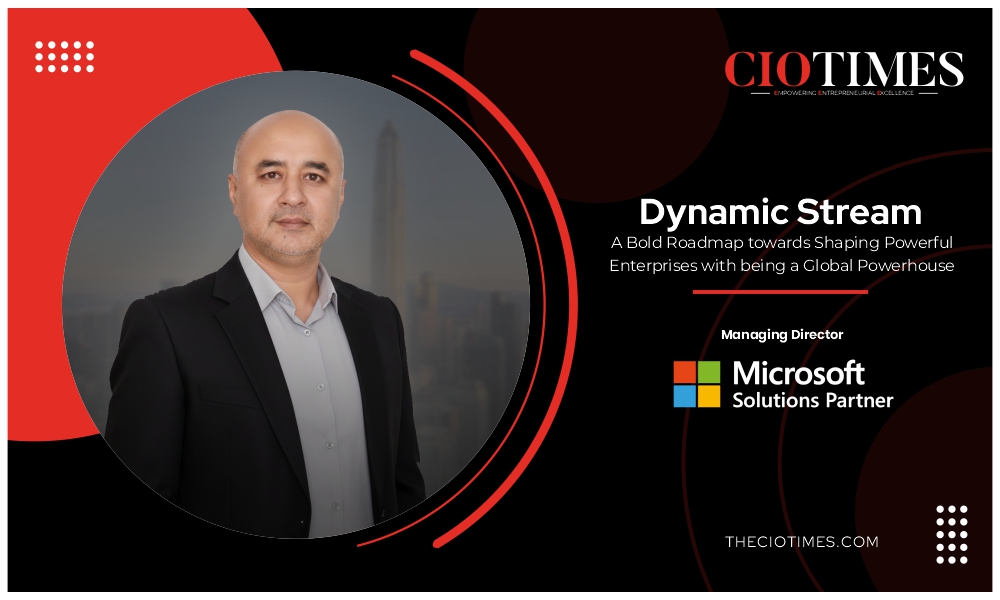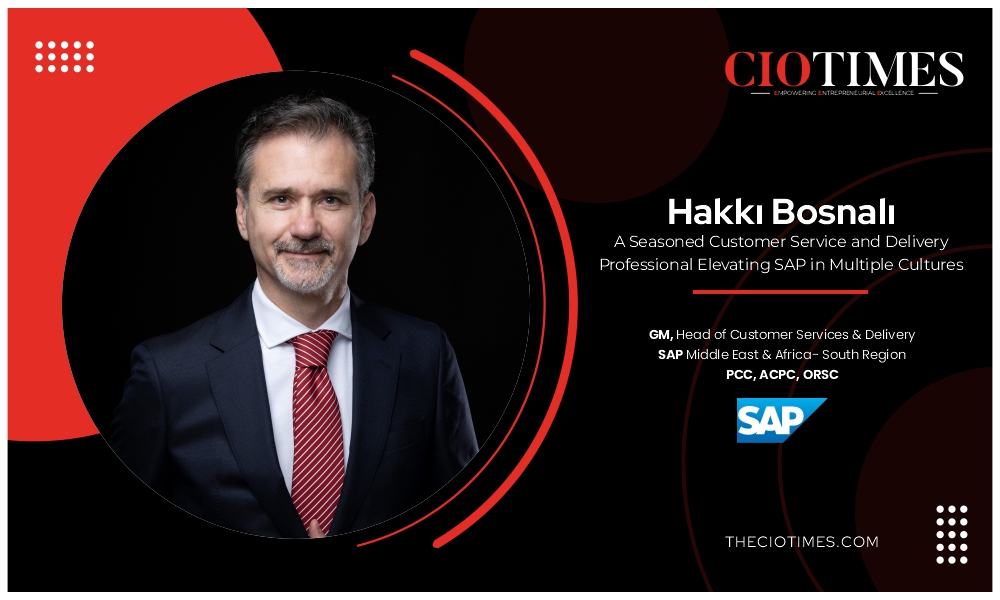A data breach opens doors to repercussions that an individual or organization may not be prepared for. The repercussions are far-reaching and deeply impactful, but Dr. Eric Cole’s cybersecurity ethos has no room for digital vulnerability. A cyber expert at heart, he’s always had a fascination with how stuff works. From a young age, his family members joked about him that he couldn’t be left alone with gadgets surrounding him in the house. He’d dismantle them so they could not be assembled back. A close friend once noticed his curiosity and suggested that he enroll in a major in computer science. This was the moment where he leveraged his savings to purchase the Commodore 64, a legend of its time.
His fascination led him to the New York Institute of Technology (NYIT). At that time, computer science programs were evolving with electrical engineering degrees with added programming courses. He started having second thoughts when a small rough patch entered. Dr. Eric navigated the conventional classes related to electrical engineering, combined with a rough semester of Physics, Calculus II, and Fortran programming. Being restless, he marched towards the university’s co-op office, opting for an internship, soaking wet due to the pouring rain.
He secured a last-minute CIA interview while still in school and, after acceptance, joined a special projects group focused on AI and predictive analytics well before their mainstream adoption. By 1992, as the World Wide Web emerged, he recognized that true security could only be tested through hacking, launching his career as a professional hacker for the CIA. Over time, he shifted from offense to defense, dedicating his career to strengthening cybersecurity and making the Internet a safer place to live and work.
Global Digital Empowerment
Secure Anchor Consulting stands out as it aims for authenticity. The team exerts itself for safeguarding the client base, the country, and the world overall. Empowering and training are the ultimate goals. Unlike the competitors, who leverage client dependency to seize maximum revenue. Aiming for prolonged client relationships, the organization imparts strategy, guidance, roadmaps, and thought leadership to the clients that enable them to deal with petty issues. Client independence is key for the organization.
Dual Stewardship Pillars
Dr. Eric has two beliefs that guide his leadership approach. It is a roadmap to nurture resilient teams that leverage productivity and efficiency at work. Those leadership principles are:
Data-oriented decisions: keeping emotions aside, he stresses that data does its magic. As decisions are data-focused, having relevant and sufficient data is crucial to coming up with productive outputs. Quality over quantity of decisions is the mantra here.
Kings eat first approach: Here, Dr. Eric highlights self-care and belief. Initially giving no heed to the said approach, he gradually realized its importance. An empty stomach doesn’t act as a helping hand in changing the world to secure cyberspace, was the insight for him.
A Passionate Mentor
Dr. Eric has coached several professionals who suffer from self-doubt and lower confidence. He says,” Believe it or not, some of the smartest people I’ve met are also their own worst critics. They struggle with believing in themselves. But once I can help someone gain confidence and believe in their mission, I can teach them anything and make them unstoppable.”
He believes the world is convinced that confidence is arrogance. Whereas, confidence blended with humility converts into the most pivotal self-gifts.
Leverage strategies Right
His business philosophy of “selling” a solution in the boardroom, while overlooking business growth, results in the scalability of the business. Cybersecurity professionals depict security as a roadblock and rely on the fear element. It adds hindrances to the integration of solutions, increasing costs.
Believing in cybersecurity being a business enabler when integrated right, Dr. Eric sees it as a force behind growth. Business outcomes should be elevated by the technology adoption. He shares an intriguing example:
“Take artificial intelligence, for example. Executives who claim that AI will replace humans have it completely wrong. AI will always be inferior to human beings. It lacks original thought, emotions, empathy, and the ability to laugh, cry, or connect with a handshake or hug. If you believe AI will replace humans, you are effectively removing innovation from your company and setting it up for failure”, he says.
He doesn’t consider it a threat but as an opportunity to enhance human productivity. It can never replace humans unless humans allow it to, which will result in humans being dissociated in the future.
A Systemic Approach
Dr. Eric emphasizes that while technology evolves, core principles remain unchanged. Just as mathematics is constant, the fundamentals of cybersecurity prevention, detection, and response remain the bedrock of effective protection. Technology’s role is to enhance execution, not replace foundational practices.
At Secure Anchor, his growth strategy has been deliberately methodical. In the early years, he prioritized developing and testing processes and methodologies personally before scaling. Only once a domain was mastered did he expand or hire, ensuring quality, consistency, and long-term scalability.
Steering Individual Threats
Dr. Eric stresses that cybersecurity is not merely a technical challenge but a business issue, one made worse by neglecting the human element. Companies may invest heavily in technology, yet a single careless action by an employee can undermine even the strongest defenses. As with driver safety, awareness and training are essential on the information superhighway; human vigilance matters as much as technical safeguards.
He points out that while basic practices such as avoiding suspicious links and verifying messages remain critical, the rise of AI has raised the stakes. Today’s phishing attempts are almost indistinguishable from legitimate communications, making formal training more important than ever. His advice remains simple yet powerful: never click on links, always use the app.
Strategic Communication
While communicating complex technical risks, Dr. Eric prefers translating them into business terms. When briefing the boardrooms, instead of speaking in technical jargon, crafting terms in dollars makes it easy to grasp.
When presenting to the board, he scrutinizes the top five risks to the organization and elaborates in understandable language. In place of using the term ‘ransomware attack,’ he chooses to say, ‘The organization could lose access to all its data for 10 days.’ With that, he provides:
- The likelihood of the risk occurring
- The financial cost if it does happen
- The cost to prevent or mitigate it
Imparting clear options is the ultimate goal of cybersecurity. Whether or not the leadership has been able to make an informed decision, Dr. Eric has fulfilled his responsibility with ease.
Abbreviation Re-explained
Dr. Eric stresses that the CISO position is not only technical, but also a leadership one. He clears the air about becoming CISO, which is a primitive process. He bifurcates the two roadways of cybersecurity: technical/tactical and strategic.
The technical professionals evolve into roles such as Chief Scientist, while strategic ones evolve into CISOs. He further breaks down the acronym CISO. The outer letters, “C” and “O,” stand for Chief Officer. That’s the focus. The inner letters, “IS,” refer to Information Security—the area of expertise. Any role with “Chief” and “Officer” in the title is focused on growth, health, and expansion of the business. The CISO should be no different.
The CISOs should establish cybersecurity as a business enabler that results in higher revenue figures. He further describes his golden rule: “If cybersecurity negatively impacts the business, then it’s being done wrong.”
Long-term Vision
Dr. Eric has a 15-year plan to achieve his mission. He believes in the philosophy of giving one’s mind enough time to channelize its energy. If given less time, we as humans can dive into second thoughts unknowingly. We get into self-doubt. But with ample time at hand, we can accomplish almost anything triumphantly, he stresses.
His 15-year target is to see the creation of global cybersecurity laws that all countries follow. In cyberspace, national boundaries don’t exist. In this digital era, we as humans should be united to implement shared laws. Not doing so can make the human fraternity unguarded.
Currently, hacking is trackable regardless of the location we live in. The majority of those attackers operate from countries without extradition treaties, where it’s not illegal to hack foreign systems. That leaves individuals and businesses with no recourse. Until the world unites under international cybersecurity law, humans remain at risk.
Coming to the point, Dr. Eric says, in the coming 5 years, his goal for the Americas is to establish unified federal laws on cybersecurity and data privacy. Other nations already have cohesive national laws, and in some cases, like the EU’s GDPR, multinational frameworks. The U.S., however, still relies on a patchwork of inconsistent state laws. That needs to change, he believes.
Wisdom Pearls
Dr. Eric shares some incredible pieces of wisdom that he lives by. He adds that people will always think a person is insane until he proves he’s extraordinary. One should be careful with whom he/she share the vision with. Share the vision with someone who helps and does not create obstacles in the way.
Consistent focus on goals and purpose opens doors that were previously presumed as roadblocks, showing one the path. Our mindset decides whether we see everything in life as positive or negative. This thought brings Dr. Eric to the most important decision anyone can make: whether they believe they live in a friendly or hostile universe. He believes that owning and living every day by the principle that one lives in a friendly universe, is guided by a loving Godly presence.
Connect with Dr. Eric Cole on LinkedIn
Visit Eric’s website Secure Anchor Consulting




